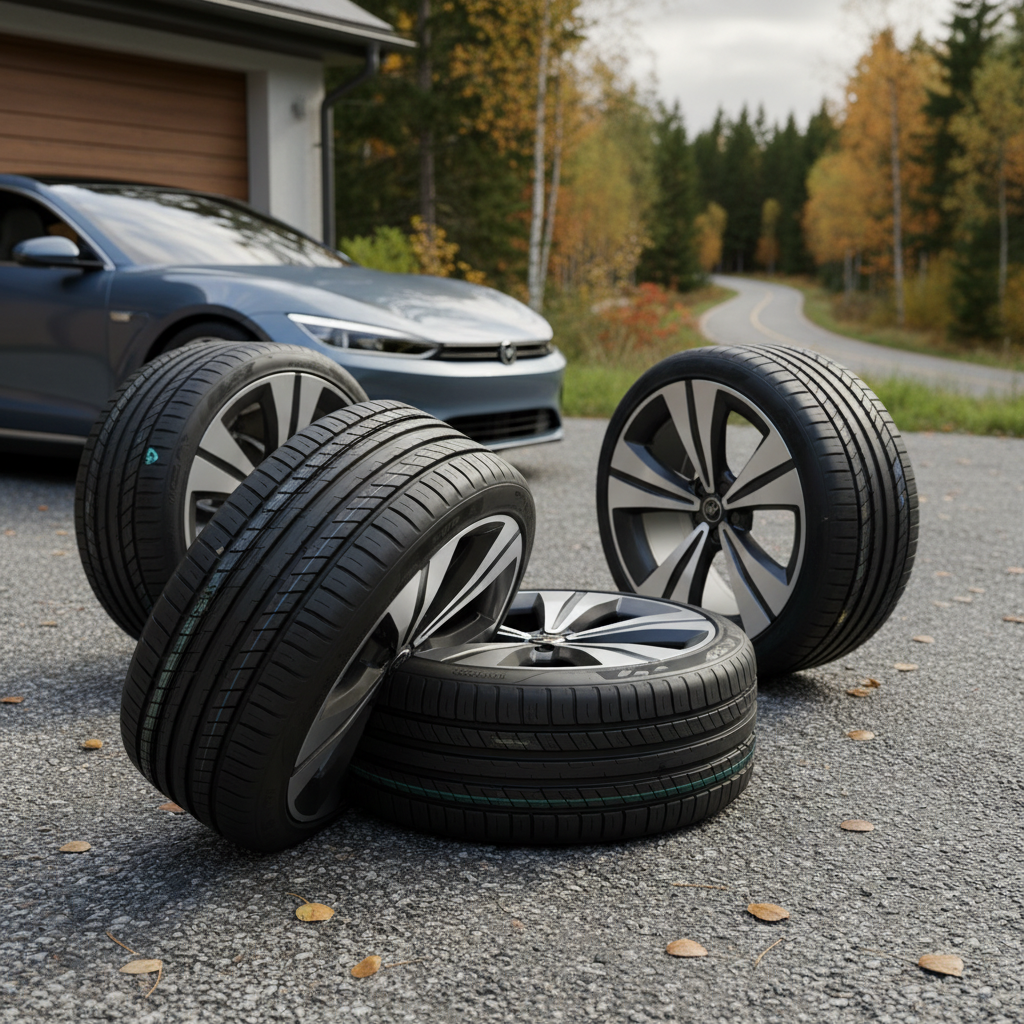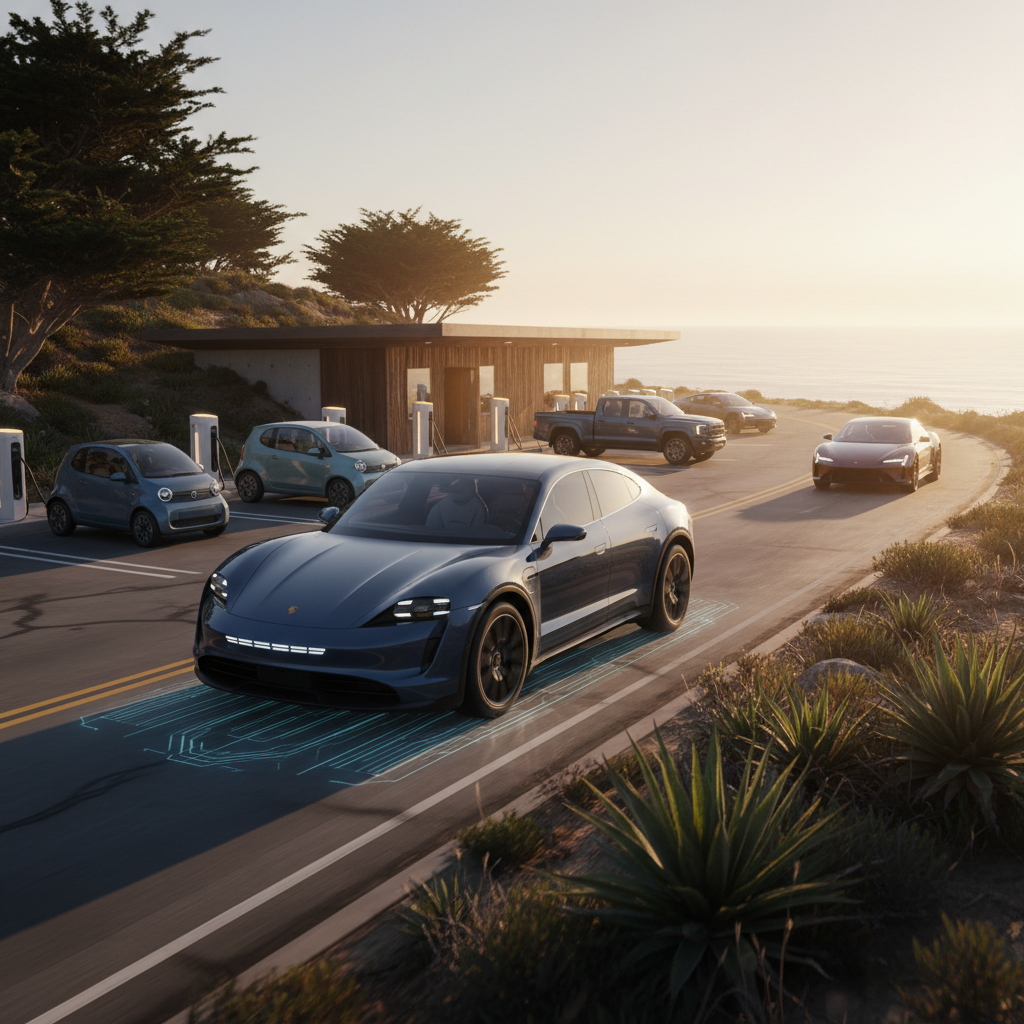If you’re watching every dollar at the pump, you’re not alone. Shoppers searching for the best fuel efficient used cars in 2025 have more choices than ever, everything from 40+ mpg gas sedans to hybrids and used EVs that effectively use no gasoline at all. The trick is knowing which models actually save you money in the real world and which just look good on a window sticker.
Quick takeaway
Why fuel efficiency still matters in a used car
Why mpg still hits your wallet hard
With a used car, your biggest expenses are usually purchase price, fuel, and maintenance. You can’t control what the previous owner paid, but you can absolutely control how much the car burns every mile you drive. Over five years, choosing a car that averages 35 mpg instead of 25 mpg can mean thousands of dollars in your pocket, often more than the price difference between two similar used models.
Think in dollars per mile, not just mpg
How to read MPG vs MPGe in the used market
MPG: for gas & hybrids
MPG (miles per gallon) is what you already know. For conventional gas cars and non plug‑in hybrids, it tells you how far you travel on one gallon of fuel. Higher is better.
- City vs highway: Hybrids usually shine in city driving; some gas cars do better on the highway.
- Combined: The combined EPA number is the fairest apples‑to‑apples figure when you’re comparing cars.
MPGe: for EVs & plug‑in hybrids
MPGe (miles per gallon equivalent) is the EPA’s way of comparing electricity use to gasoline. It’s useful for comparisons, but what really matters is cost per mile.
- Most modern EVs fall between about 100–135 MPGe.
- The more efficient models (like Hyundai Ioniq 6 or Tesla Model 3) use less electricity per mile, which shows up as lower utility bills.
Don’t forget the plug‑in hybrid wrinkle
Top fuel efficient used gas cars (non‑hybrid)
Hybrids and EVs grab the headlines, but there are plenty of simple, fuel‑sipping gas cars that are inexpensive to buy and cheap to run. These make especially good sense if you want low ownership costs but you’re not ready for batteries or charging cables.
Great fuel efficient used gas cars to target
Easy to live with, easy to maintain, and friendly at the pump.
Honda Civic (2016+)
Late‑model Civics are a sweet spot for efficiency and comfort.
- Many trims deliver around 36 mpg combined in non‑hybrid form.
- Comfortable on the highway, roomy enough for a small family.
- Strong reliability record keeps long‑term costs in check.
Hyundai Elantra (2017+)
The Elantra is one of the most efficient non‑hybrid sedans you can buy.
- EPA combined ratings around the mid‑30s.
- Often priced lower than comparable Civics or Corollas on the used market.
- Look for models with full service records.
Toyota Corolla (2014+)
A perennial economy champ and widely available.
- Many models rated around 35 mpg combined.
- Low running costs and strong resale value.
- Ideal if you prefer simplicity over tech‑heavy dashboards.
Why small gas cars still make sense
Best fuel efficient used hybrid cars
If you rack up serious miles, long commutes, rideshare driving, frequent road trips, then used hybrids are hard to beat. Modern hybrids routinely achieve 45–55 mpg combined, and many of the most efficient 2023–2025 models will be hitting the used market over the next few years.
High‑mpg used hybrid all‑stars
These are the nameplates you’ll see over and over again when you search for the best fuel efficient used cars.
Toyota Prius (2016–present)
The Prius is the classic fuel‑economy hero for a reason.
- Recent generations are rated up to around 57 mpg combined.
- Earlier cars still comfortably deliver mileage in the high 40s or low 50s when maintained.
- Very common on the used market, which keeps prices competitive.
If you drive a lot of city miles, it’s hard to find a better long‑term fuel saver.
Honda Accord Hybrid & Hyundai Sonata Hybrid
Need more space without sacrificing mpg?
- Recent Accord Hybrids post high‑40s combined mpg numbers.
- Hyundai Sonata Hybrid models can reach the low‑50s combined.
- Smooth, quiet, and more comfortable than many crossovers.
These are great one‑car‑garage solutions if you want efficiency and family‑car practicality.
- Toyota Corolla Hybrid and Hyundai Elantra Hybrid are top compact choices, typically nudging 50+ mpg combined.
- Compact hybrid SUVs like the Kia Niro Hybrid or Toyota RAV4 Hybrid marry hatchback practicality with high‑30s to low‑40s mpg.
- Premium hybrids such as the Lexus UX or ES Hybrid offer luxury appointments while still delivering low‑40s mpg.
Beware high‑mileage hybrids with missing records
Most efficient used electric cars

If you can charge at home or at work, the most fuel efficient used cars aren’t burning fuel at all, they’re used EVs. They translate energy so efficiently that a 100–135 MPGe EV can cost a fraction per mile compared with even the best gas hybrid, depending on your electricity rates.
Used EVs known for standout efficiency
Specific years and trims vary, but these nameplates consistently score near the top of efficiency charts.
Hyundai Ioniq Electric / Ioniq 6
The Hyundai Ioniq family has been an efficiency benchmark for years.
- Certain Ioniq Electric and Ioniq 6 variants are rated around 130+ MPGe.
- Sleek aerodynamics and efficient motors mean extremely low energy use per mile.
- Best for commuters with reliable charging access.
Tesla Model 3 & Model Y
Tesla’s most popular models combine range and efficiency.
- Model 3 variants commonly sit around 120–130 MPGe combined.
- Model Y is slightly less efficient but still strong, around 120 MPGe in many trims.
- Access to Tesla’s Supercharger network can make long trips much easier.
Chevrolet Bolt EV
A small hatchback with a big efficiency upside.
- Many Bolts are rated near 120 MPGe combined.
- Compact size, simple interior, and strong real‑world range.
- Often one of the most affordable used EVs in the U.S. market.
How Recharged fits in
Fuel economy comparison: gas vs hybrid vs EV
It’s one thing to say an EV is efficient and a hybrid is “good on gas.” It’s more helpful to see how different types of fuel efficient used cars stack up in everyday use. The table below uses representative models to illustrate the gap. Actual numbers will vary by year and trim, but the pattern holds.
Illustrative efficiency comparison by powertrain
Approximate combined efficiency and energy cost for popular categories of fuel efficient used cars, assuming 15,000 miles per year and typical U.S. energy prices.
| Category & example | Typical rating | Energy source | Approx. energy cost per 100 miles | Notes |
|---|---|---|---|---|
| Fuel‑efficient gas compact (e.g., Honda Civic, Toyota Corolla) | 36 mpg combined | Gasoline | ≈ $9.70 | Simple to own and maintain; great if you drive moderate miles. |
| High‑mpg hybrid sedan (e.g., Toyota Prius, Hyundai Elantra Hybrid) | 50–55 mpg combined | Gasoline | ≈ $6.40–$7.00 | Shines for long commutes and stop‑and‑go traffic. |
| Compact hybrid SUV (e.g., Kia Niro Hybrid, Toyota RAV4 Hybrid) | 40–43 mpg combined | Gasoline | ≈ $8.10–$8.75 | More space and ride height with only a small hit to fuel costs. |
| Efficient used EV (e.g., Chevy Bolt, Hyundai Ioniq Electric) | 110–130 MPGe | Electricity | ≈ $3.50–$4.20 | Lowest energy cost per mile if you can charge at home reliably. |
Gas price assumed at $3.50/gal and home electricity at $0.15/kWh. Your local costs may differ.
Use these numbers as a decision tool
How to shop smart for a fuel efficient used car
Step‑by‑step: finding the right efficient used car
1. Define your real driving pattern
List how many miles you drive in a typical week, how often you take long trips, and whether you have access to regular home or workplace charging. An EV commuter that’s perfect for 40 miles a day may not be ideal for monthly 500‑mile road trips.
2. Set a total budget, not just a payment
Include purchase price, taxes, insurance, registration, and an estimate of five years of fuel or electricity. A slightly higher monthly payment for a far more efficient car can still come out cheaper overall.
3. Shortlist models by efficiency and practicality
Create three short lists: efficient gas compacts, hybrids, and EVs that fit your lifestyle. For example, a Civic, a Prius, and a Bolt EV give you three very different, but efficient, paths.
4. Compare real listings, not just specs
Look at actual used‑market prices, odometer readings, options, and condition. On Recharged, you can filter by body style, price, range, and efficiency to quickly hone in on the right set of cars.
5. Check history and health carefully
For gas and hybrids, request full service records and check for accident history. For EVs, prioritize vehicles with documented battery care and a recent battery health report like the <strong>Recharged Score</strong>.
6. Test drive with efficiency in mind
On your drive, watch how the car behaves at steady speeds and in stop‑and‑go traffic. Check the trip computer to see realistic mpg or kWh/100 mi, and make sure the driving position works for the hours you’ll spend behind the wheel.
Don’t chase mpg at the expense of safety
Financing and total cost of ownership
Fuel efficiency is one pillar of affordability; how you finance the car is another. A super‑efficient car that stretches your budget to the breaking point is not a win. Instead, aim for a payment that leaves room for insurance, maintenance, and a rainy‑day fund.
Smart financing for fuel savers
- Try to keep your total monthly car costs (payment, insurance, fuel) under a comfortable percentage of your take‑home pay.
- Shorter loan terms usually mean less interest paid overall, even if the payment is a bit higher.
- A strong down payment can open up better rates, especially on late‑model hybrids and EVs.
How Recharged can help
Through Recharged you can:
- Pre‑qualify for financing online with no impact to your credit score.
- Compare different vehicles side by side on price, efficiency, and projected ownership costs.
- Trade in your existing vehicle or get an instant offer, then apply that value directly to a more efficient car.
Use savings to protect your investment
Fuel efficient used cars: FAQ
Frequently asked questions about fuel efficient used cars
Bottom line: match the car to your driving
The best fuel efficient used cars in 2025 aren’t limited to one technology. A simple gas compact can be perfect for a lower‑mileage driver on a tight budget. A high‑mpg hybrid pays off for long commutes. And a well‑chosen used EV offers the lowest energy cost per mile if you can plug in regularly. The key is to be honest about how, and where, you drive, then choose the car that keeps more of your money in your wallet instead of at the pump.
If you want help comparing your options, Recharged makes it easier with battery health diagnostics, transparent pricing, financing that you can pre‑qualify for online, and EV‑specialist support from your first search to delivery. Whether your next car burns gas or electrons, you’ll know exactly what you’re getting, and exactly how efficient it really is.



